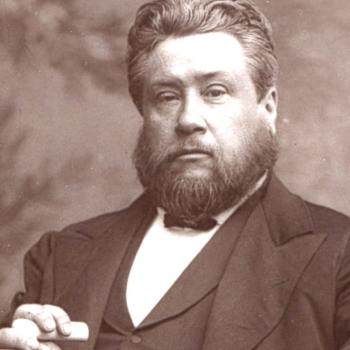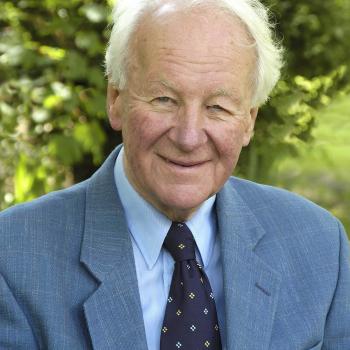How easy is it for us to become lop sided in our faith? The answer is very easy! One of the goals I have always had in blogging is to expose myself and others to people who might emphasize different aspects of the truth to us in order that we might grasp the full counsel of God. It is this idea that lays behind some of my “spectrum” posts (see for example my Arminocalvinist, Complementarian-egalitarian, and Charismatic – cessationist posts)
Sometimes it may even be necessary to LISTEN to someone who you believe is too focussed on a certain concept and takes it to an extreme. That way you can redress your own lack of focus on that truth! This fantastic excerpt from sermon number 2233 Spurgeon needs no further introduction from me:
“IN trying to understand the truth of God we are in great danger of being one-sided. One man catches at part of a truth, and says, “That is it, and that is the whole of it.” Another man lays hold of another side of truth, and he says, “This is the whole of it;” and straightaway there arises a contention between them. They are like the men who quarrelled as to the material of which a certain shield was made. One of them said that it was a golden shield; the other was equally sure that it was a silver one: whereas it so happened that it was gold on one side and silver on the other. So they fiercely wrangled when they might very well have been agreed if they had known a little more. Most truths have two sides, and it is well to try to see both of them. Nearly every doctrine in the Word of God is balanced by some other doctrine, and many of the differences amongst the people of God have arisen from the undue stress which has been laid on one aspect of truth, while the other side has been altogether neglected. This danger very frequently besets us. For instance, some see the sovereignty of God, and are so carried away with that sublime truth, that they deny the responsibility of man; they thus both wrest the doctrine they do know, and fight against the doctrine they do not know. Others can see the universality of the gospel invitation, and with large hearts can urge all men to turn unto God and live; but they have never seen the speciality of this redemptive work of Christ, and so fail to understand the eternal purpose of God to save his chosen people. Running away with half a truth, they are like men that go through the wilderness wearing only one shoe, and they get lame of one foot, and that makes them limp all over. It does not matter which foot it is that is lame; the man is a cripple if either foot is thus afflicted.
It is essential for us to hold our minds ready to receive whatever the Holy Ghost teaches, and frequently to accept truths which we cannot harmonize. I have long ago given up all attempts to reconcile what God has revealed in one part of the Bible with what he has made known in another part. If I find in God’s Word doctrines which appear to me to be at variance with the teaching in other passages, I say to myself, “God knows where these things harmonize, and if he had wanted me to know it, he would have told me. As he has not told me, why should I worry myself about the matter? I am not going to speculate and theorize as to where these truths meet; nor will I cast a bridge of gossamer across the deep gulf which I fancy I see, and then trust myself to a thread that cannot bear my weight.” “The secret things belong unto the Lord our God: but those things which are revealed belong unto us and to our children for ever.” One said to me, the other day, concerning two great doctrines, “How do you make these two agree?” I answered by first asking another question, “How do I make two things agree that never fell out? There is no need for me to attempt anything of the kind. These two truths are perfectly reconcilable; and as they come from God’s mouth, it would be as difficult for you to show that they do not agree as it is for me to show that they do agree.” God does not say “Yea” and “Nay.” The Lord does not blow hot and cold. If he reveals two doctrines which apparently contradict each other, yet are they both true, since both are spoken by the God who cannot lie; and if I cannot see how they can be both true, it comforts me to think that I am not asked to sec it; I am expected to believe it, and God’s grace gives me the faith to do even that. In fact, I rather like a difficulty, for then there is an opportunity for the exercise of faith. It is glorious, when one is sailing, to come right up under the lee of a great rock, and to be compelled to say, “Well, I cannot proceed any further this way.” What then? Why, just let your anchor down, and make a harbour of the rock, and lie there at rest while stormy winds do blow. That is what you should do with difficult doctrines; make a quiet haven of the mysterious truth, and let it shelter you in time of doubt or despondency. When the storm is passed, you will find that there are other ways for you to go where it is perfectly plain sailing. Seeing that the revelation is divine, there must be mysteries which mortals cannot understand at present. Let us comfort ourselves with our Savior’s words, “What thou knowest not now, thou shalt know hereafter.” Some day the way will be made plain before us; and meanwhile, our attitude should be that of trustful children, who believe implicitly whatever their loving father tells them, whether they comprehend it or not.”











